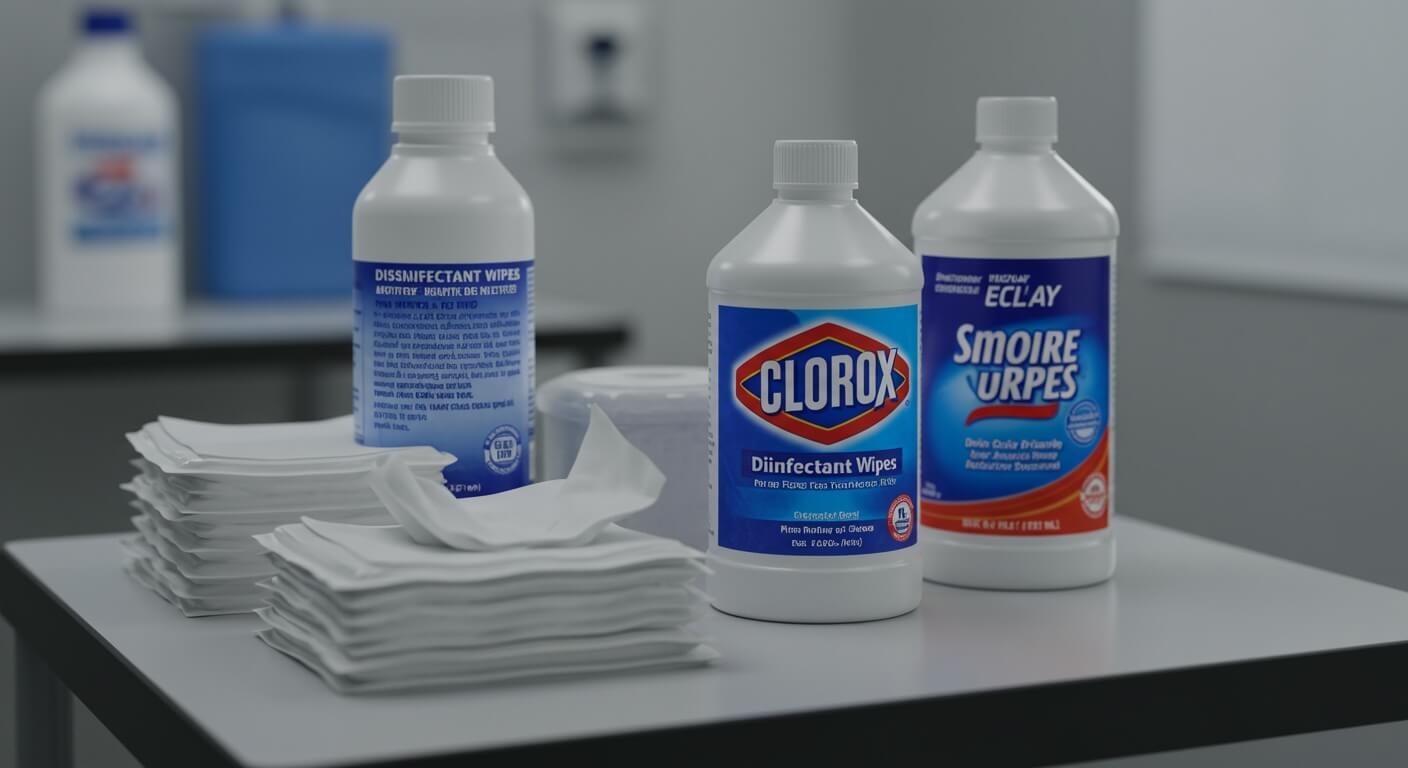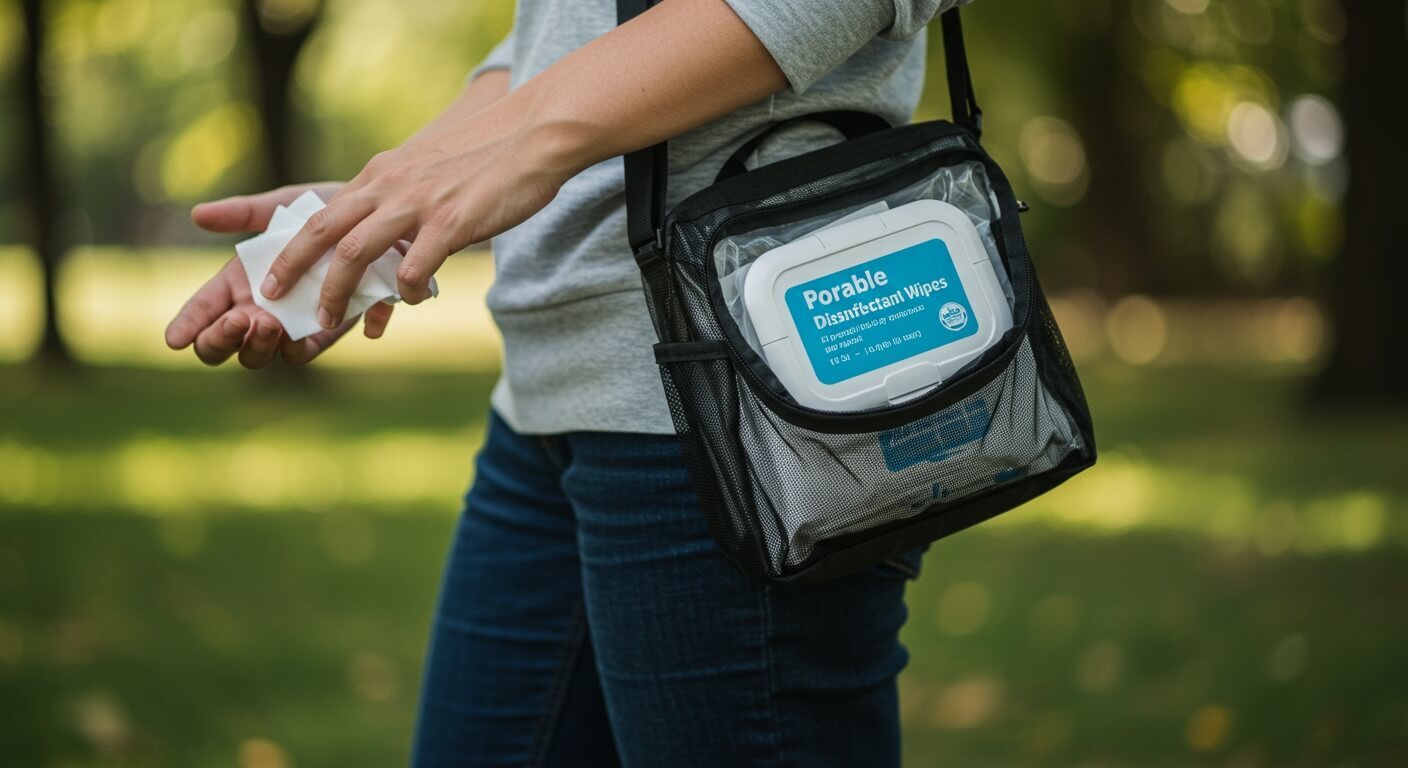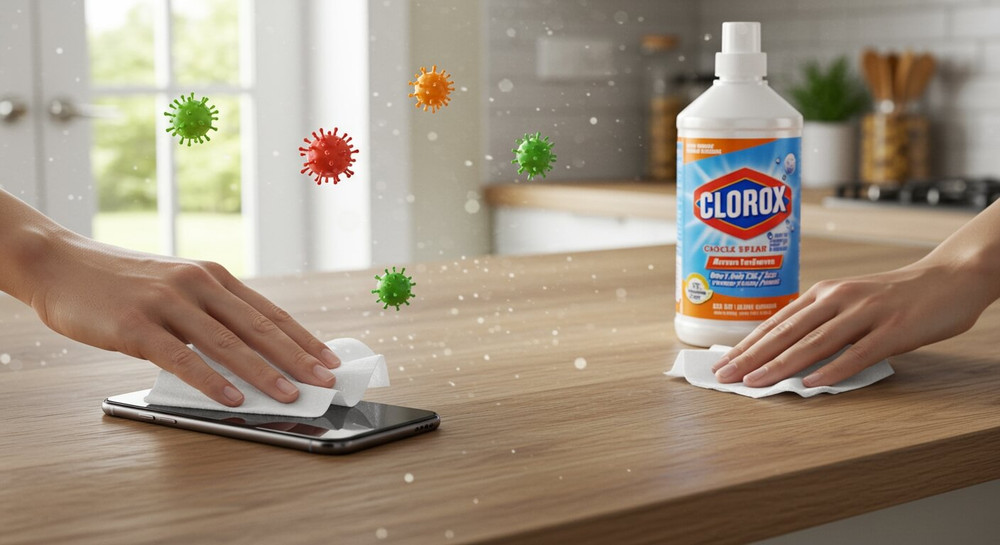Alcohol Wipes vs Clorox Wipes: Safe Disinfection Comparison
Sep 17th 2025
Clean hands, safe homes, and germ-free workplaces are the desires of everyone today. This is not difficult with the help of disinfectant wipes since they are quick, portable, and effective. The disinfectant wipes market has been on fire during COVID-19 with multiple billions of dollars spent annually. Individuals all over purchased alcohol wipes or Clorox disinfectant wipes to use in households and workplaces.
Nevertheless, lots of people pose a relevant question before they select disinfectant products. They have the question about what is safer between alcoholic wipes and Clorox wipes and when should each be used? The answer is based on substances, surfaces, and safety requirements both at home and workplace.
Understanding Alcohol Wipes and Clorox Wipes
The wipes with alcohol usually contain isopropyl or ethyl alcohol. They are used for hands, medical tools, and electronic devices. Many doctors recommend rubbing alcoholic wipes for small tasks in clinics or personal care.
Clorox cleaning wipes are different as they usually have bleach or special disinfectant chemicals. Such wipes are effective on hard non-porous such as kitchen counters, bathrooms, or office desks. When handling high-risk pathogens, hospitals often use Clorox healthcare wipes.
Healthcare experts often suggest PDI Sani-Hands, which are high-quality large wipes with alcohol. They are easier to use in delicate settings such as in a clinic or nursing home and are safer in personal care.

How Do Alcohol Wipes and Clorox Wipes Work?
The two wipes kill germs using different scientific actions. The wipes with alcohol kill bacteria and viruses by breaking down their protective membranes and proteins. They are very quick and it is especially known that they are quite active against the common viruses and bacteria.
More specifically, Clorox disinfectant wipes include bleach or quaternary compounds that oxidize pathogens destroying their structure. These wipes become more powerful against harder microbes that are possible to endure normal cleaning.
Studies show rubbing alcoholic wipes kill 99.9% of germs within 30 seconds in healthcare settings. On the other hand, bleach-based Clorox healthcare wipes provide broader coverage in hospital environments against spores and resistant organisms.
Key Ingredients in Alcohol Wipes and Clorox Wipes
The effectiveness of wipes is based on ingredients.
- Alcohol wipes: Typically include 70% (or more) isopropyl or ethyl alcohol.
- Clorox cleaning wipes: Include clorox wipe ingredients such as sodium hypochlorite (bleach) or quaternary ammonium compounds.
PDI Sani-Cloth Bleach Wipes are generally substitutes of standard wipes and used by hospitals. These wipes are effective in such risky units as isolation rooms or intensive care units.
Mechanisms of Action in Detail
The science behind the wipes explains why both remain effective.
- Alcohol wipes: Denature proteins and dissolve lipids and these quickly disable the germs.
- Clorox disinfectant wipes: Disintegrate DNA and proteins, such that dangerous organisms do not regenerate.
Comparative research points out speed and durability. The wipes with alcohol are incredibly quick but ineffective on surfaces. Clorox healthcare wipes can last longer when applied, and they can be used in areas that have patients who require long-term protection.
How to Use Alcohol Wipes and Clorox Wipes Effectively
Correct use ensures maximum safety.
- Apply wipes with alcohol to electronics, skin, and small daily objects.
- Wipe kitchens, bathrooms and common desks with Clorox cleaning wipes.
PDI Super Sani-Cloth Wipe is commonly chosen by healthcare facilities because of its expanded disinfectant. These choices add the performance of Clorox disinfectant wipes with broader implementation in clinical settings. Adhering to instructions is important since improper use of wipes diminishes its action and leaves germs in place.
Benefits of Using Alcohol Wipes and Clorox Wipes
When used appropriately, both wipes have distinct advantages.
- Alcohol wipes: Faster to dry, can be used in short contact with the skin, portable.
- Large alcohol wipes: These are applicable in a hospital or large spaces and are bigger.
- Clorox disinfectant wipes: More robust against tough bacteria, such as C. difficile spores.
A survey indicates that more than 70 percent of hospitals have alcohol wipe and Clorox healthcare wipe. The two are safer on various surfaces and scenarios and offer a balance of both convenience and strength.
Potential Side Effects and Risks
Any disinfectant product possesses potential side effects on inappropriate use. wipes with alcohol can also dry the skin or cause minor wounds to be irritated when used over and over. People should ask, are wipes with alcohol safe for skin? Yes, but in moderation where intact skin is concerned.
Clorox cleaning wipes on the contrary can prove to be unsafe when it comes to direct contact on the skin. People have a question, are the Clorox wipes safe on skin? The answer is no. These wipes should not be used on hands but surfaces. Another issue with Clorox disinfectant wipes is strong odor and potential discolouration of fabric. Before using either type of personal protective equipement in sensitive areas always check safety instructions.

Choosing the Right Disinfectant Wipe
Choosing depends on where and how you plan to disinfect.
- For personal use, wipes with alcohol are the safer option.
- For electronics or medical tools, rubbing wipes with alcohol protects without strong residues.
- For deep cleaning in kitchens or shared offices, Clorox cleaning wipes are best.
- For hospital-grade needs, PDI Sani-Cloth Prime Germicidal Wipes offer professional performance.
The right choice always balances convenience, surface type, and health safety.
Conclusion
Comparing wipes with alcohol with Clorox wipes or bleach-based disinfectant wipes, the advantages of both products are obvious. Alcoholic wipes are safer when used personally, on electronics, and against the skin. Clorox disinfectant wipes provide stronger power for surfaces, shared spaces, and healthcare cleaning. Choosing depends on the environment and the safety you require.
Looking for hospital-grade or safe personal-use disinfectant wipes? Explore Arpovo Health’s full disinfectant wipe collection today. Find reliable, tested, and effective wipes trusted globally for safety and disinfection.
FAQs
Which is safer: alcoholic wipes or Clorox wipes?
The safety of wipes with alcohol and Clorox wipes or bleach-based disinfectant wipes will lie on the use. Alcohol wipes are less harmful to skin and other delicate electronics. Clorox cleaning wipes are more suitable on harder surfaces such as kitchen, bathroom, or desks.
Do alcohol wipes kill bacteria and viruses?
Yes, wipes with alcohol are known to kill most bacteria and a great number of enveloped viruses in a short time. They destroy germs rapidly and destroy cell membranes and proteins. Healthcare tests prove kill rates above 99.9% within thirty seconds.
Can Clorox wipes be used on skin?
Many ask, are Clorox wipes safe for skin? The answer is no. They are made for surfaces only, not direct skin contact. Strong chemicals inside may irritate or harm sensitive areas.
What ingredients make Clorox wipes effective?
Key ingredients of this bleach-based disinfectant wipes are sodium hypochlorite or quaternary ammonium compounds. These chemicals accumulate the necessary chemicals, which break down the DNA and proteins, and eliminate germs. Their wide usage universally makes Clorox healthcare wipes a valuable asset across hospitals.
When should I use alcohol wipes instead of Clorox wipes?
Clean hands, small objects or sensitive surfaces such as phones with wipes with alcohol. They are quick-drying, safe, and portable to meet daily needs. Store Clorox disinfectant wipes to do the harder cleaning jobs that need more disinfection.

